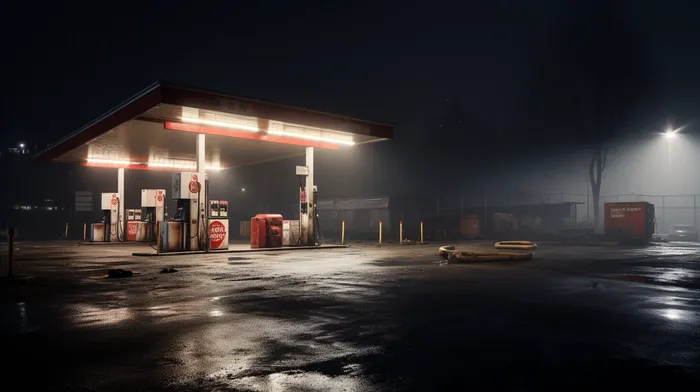An everyday event that may go unnoticed could be creating a significant health issue right in your neighborhood. Frequent small gasoline spills at gas stations during refueling can contaminate soil and water, negatively affecting nearby residents.
Spills as a Contamination Source
Researchers at the Johns Hopkins Bloomberg School of Public Health have found that these tiny spills, when accumulated over time, can lead to an alarming level of contamination. Gas station owners have long been aware of the danger posed by leaks in underground storage tanks and have taken steps to mitigate them. However, the small, everyday spills resulting from customers refilling their vehicles are often overlooked.
Over several years, the concrete pads supporting the pumps can soak up a surprisingly large amount of gasoline. Gradually, this gasoline seeps through the concrete and enters the earth and water below the station. If you use well water in the vicinity of the station, carcinogenic chemicals from the gasoline might be in your drinking water.
The Gasoline Spill Effect
According to the Hopkins researchers, about 1,500 liters of gasoline are spilled by customers at gas stations every 10 years on average. If even a small percentage of that reaches the ground, the consequences could be significant, as gasoline contains harmful chemicals such as benzene, which is a known human carcinogen.
Researcher Markus Hilpert explains that when gasoline spills onto concrete, the droplet eventually disappears from the surface. If no stain is left behind, people often assume that no gasoline infiltrated the pavement and that it all evaporated. “According to our laboratory-based research and supported by our mathematical model, this assumption is incorrect. Our experiments suggest that even the smallest gasoline spills can have a lasting impact.”
Health Effects of Benzene
The American Cancer Society states that long-term exposure to benzene in the air can lead to leukemia, a cancer of the bone marrow that can cause a shortage of red blood cells, leading to anemia and, in severe cases, bleeding and infections. Other side effects of benzene exposure include drowsiness, dizziness, rapid or irregular heartbeat, headaches, tremors, confusion, unconsciousness, and even death.
What You Can Do
If you’re using well water and there are gas stations in your area, have your water checked periodically to ensure that it’s safe. The Environmental Protection Agency (EPA) recommends that private well owners test their water at least once a year for contaminants.
Avoid drinking tap water if you detect a gasoline or chemical odor, and refrain from using it for cooking until you’ve had it tested. It’s also wise to install water filtration systems that specifically target contaminants, such as benzene.
Preventing Gasoline Spills
As a customer, you can play a part in minimizing gasoline spills at the pumps. When at the gas station, be careful and attentive during refueling, ensuring the nozzle is securely in place before you start pumping. Stop refilling right as the pump clicks off, as any additional gasoline will likely spill and be wasted.
Gas station owners should also be proactive in addressing spills, installing sensors to detect them and training staff to clean spills quickly and effectively. Incorporating systems that capture spilled fuel before it reaches the ground may also be a good investment.
In Conclusion
The issue of gasoline contamination reaches beyond gas stations – it can affect your health, your neighborhood, and ultimately, the environment. By being mindful of spills at the gas station, testing your water periodically, and installing appropriate filtration systems, you can play your part in protecting yourself and your community from the harmful effects of gasoline contamination.



